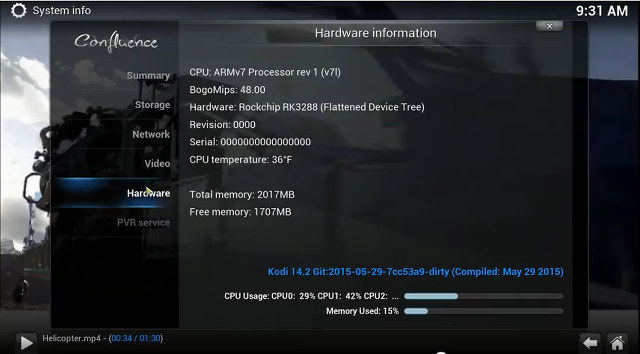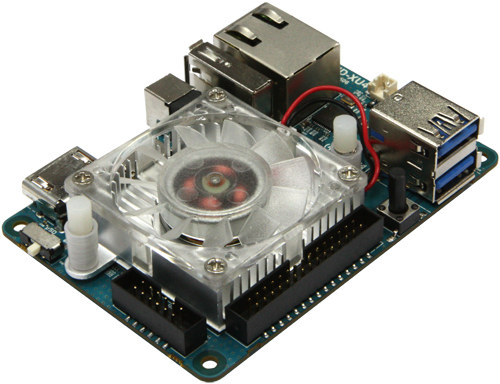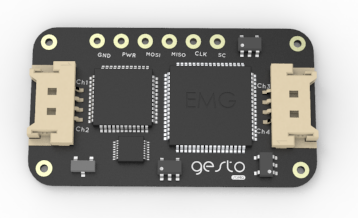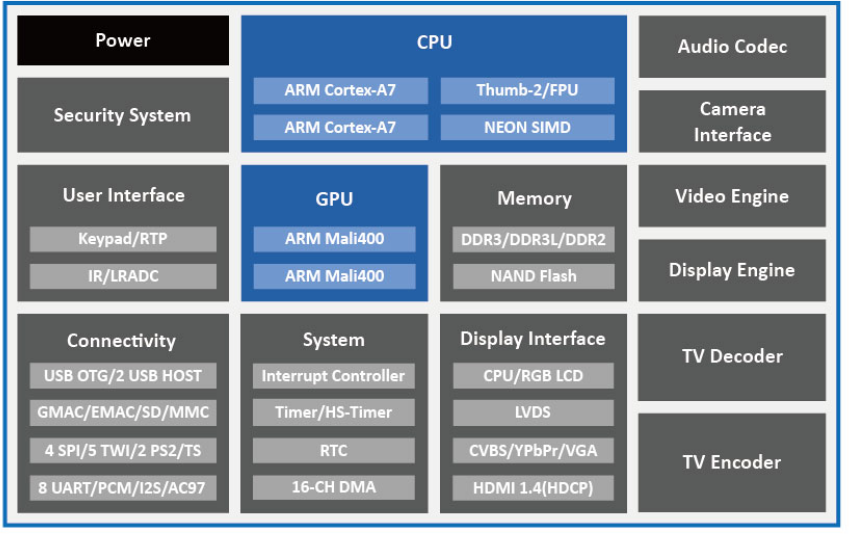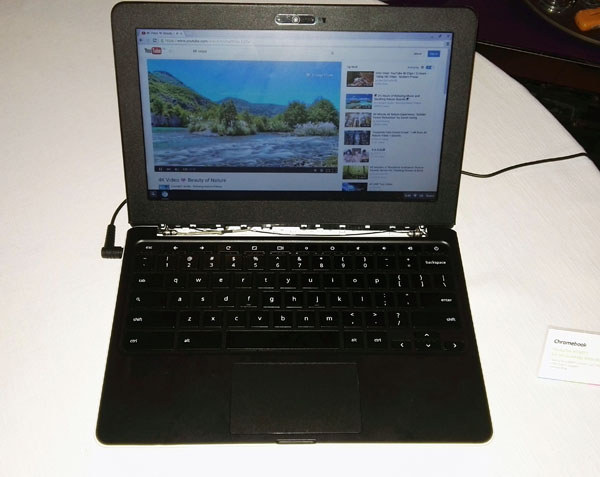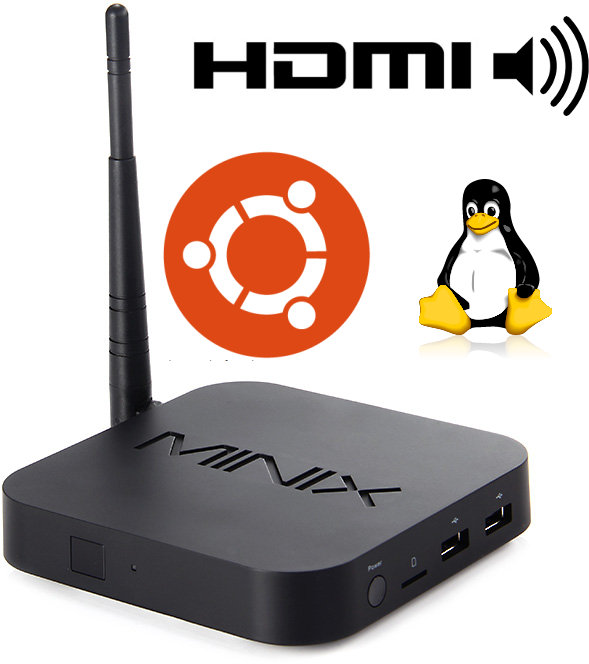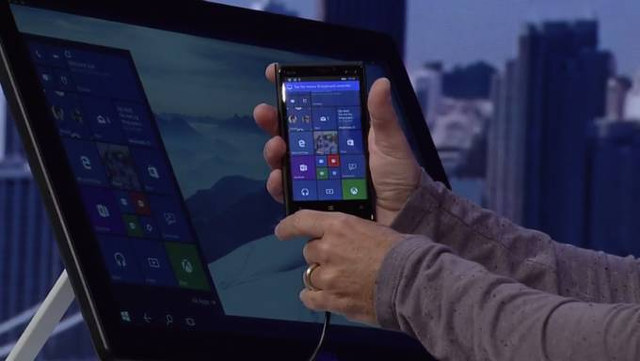Rockchip RK3288 is one of the most popular platforms for TV boxes, and while most boxes are sold with Android OS, it can also run various Linux distributions with two main caveats: 2D/3D GPU acceleration, and hardware video decoding by the VPU. It appears the last two have been worked on, as yesterday, I got tipped that Kodi 14.2 Linux was running on Ugoos UT3 and Radxa Rock2 Square. Since both hardware platforms showcased a Kodi port at the about same time, it’s probably safe to assume they use the same implementation (despite slightly different build dates May 29 vs June 6), which has been developed by “Marc” (or is it MAC?) using the Android libraries and libhybris for video decoding, raw2 device driver for 2D HW accelerated blitting and converting frames, and ARM OpenGL library, driver and examples, among other software packages. So let’s check the demos starting with […]
ODROID-XU4 Development Board is a Smaller and Cheaper Version of ODROID-XU3 Board
Many people are expecting Hardkernel to launch an Exynos 7 board, but this won’t be with ODROID-XU4, maybe with ODROID-XU5, as the latest development board from Hardkernel is a modified version of ODROID-XU3 with the same Exynos 5422 octa-core processor with four Cortex-A15 cores @ 2GHz and four Cortex-A7 cores. ODROID-XU4 board specifications (differences with ODROID-XU3 highlighted and sometimes crossed out in bold): SoC – Samsung Exynos 5422 quad core ARM Cortex-A15 @ 2.0GHz quad core ARM Cortex-A7 @ 1.4GHz with Mali-T628 MP6 GPU supporting OpenGL ES 3.0 / 2.0 / 1.1 and OpenCL 1.1 Full profile System Memory – 2GB LPDDR3 RAM PoP (750 MHz, 12GB/s memory bandwidth, 2x32bit bus) Storage – Micro SD slot (up to 64GB) + eMMC 5.0 module socket (16, 32, and 64GB modules available) Video Output – micro HDMI (Up to 1080p) and DisplayPort (up to 2160p) Audio Output – HDMI, 3.5mm headphone jack, […]
Gesto is a Wearable Gesture Motion Solution for Makers (Crowdfunding)
A while ago I wrote about an open source prosthetic arm controlled by signals generated by your arm’s muscles. It used an Arduino board, a bio-feedback shield by Olimex, and inMoov Hand for the arm and hand. It worked, but lacked accuracy. Gesto is a solution based on boards powered by Atmel MCUs that looks somewhat similar, but with higher accuracy (over 100 gestures have been tested), and the project has now been launched on Crowdsupply. Two kits are available: Gesto Stella EMG circuit – ADS1294 MCU – Atmel ATmega1284p 2x EMG cables connector Through holes with GND, PWR, MOSI, MISO, CLK and SC Dimensions – 35 x 20 mm Includes 16 disposable electrodes and relevant cables Gesto Caelum EMG circuit – ADS1294 MCU – Atmel ATmega1284p Sensors – 3-axis accelerometer (MMA8652FC) Connectivity – Bluetooth (RN42-HID) 2x EMG cables connector USB – Micro USB connector Programming – ICSP connector Power […]
Allwinner T2 Dual Core Processor is Made for Automotive Infotainment and Navigation
Allwinner already has several processor families, the most famous being the A-series for tablets, followed bythe H-series for home entertainment, the V-series for video application, the R-series for IoT as found in R8 module used in C.H.I.P $9 computer, and now I’ve just found out the company launched T-series with Allwinner T2 and T8 for “Transportation”/automotive applications. I don’t have any details about T8 processor, but the company kindly shared a product brief with the specs for Allwinner T2: CPU – Dual core Cortex A7 CPU – Mali-400MP2 supporting OpenGL ES 1.1/2.0 Memory – DDR2, DDR3, and DDR3L controller, NAND flash controller with 64-bit ECC Video Inputs – 4x AV Inputs Video – H.264 2160p video decoding, multi-format decoding, h.264 encoding @1080p30 / 720p60. Display – Multi-channel HD display with integrated HDMI 1.4 transmitter, CPU/RGB/LVDS display interface, support for VGA/CVBS/YPbPr, and integrated TV decoder. Camera – Integrated parallel 8-bit interface YUV sensor, […]
Chromebooks with Mediatek MT8173 Cortex A72 Showcased at Computex 2015
Chromebooks were originally all based on Intel processor, but eventually ARM based Chromebooks got launched starting with Samsung Exynos, more recently Rockchip RK3288, and soon we’ll have Mediatek Chromebooks based on their latest Cortex A72 + A53 processor. The platform is still in development, but some prototypes are being shown up at Computex 2015 in Taipei. The full specs are not available but we do know the laptop features MT8173 SoC with 2x Cortex A72 cores, 2x Cortex A53 cores, and a PowerVR GX6250 GPU. NotebookItalia is at Computex and in their short video below with can hear the spokesman claiming support for 4K video playback, 2K display, and the presence of Type C USB port that can be used to connect device, but also charging the laptop. Mediatek Chromebooks should offer about twice the single thread performance as Rockchip RK3288 devices, thanks to the use Cortex A72 cores instead […]
MINIX NEO Z64W (Intel Atom Z3735F) mini PC gets HDMI Audio in Ubuntu
We’ve been able to run Ubuntu on Intel Atom Z3735F mini PCs, as well as other Linux distributions, for a while, but with an important caveat: HDMI audio would not work, so instead you had to use an external USB sound card to get any audio. Luckily the problem seems solved, as Linuxium has now released a script (audio-wifi-minix-neo-z64-release.sh) and relevant files that will patch your system to enable HDMI audio, and WiFI on MINIX NEO Z64W running Ubuntu. Ian Morrison (Liuxium) compiled a Linux kernel and the Wi-Fi driver, together with a modified DSDT (Differentiated System Description Table) table to fix an ACPI bug. He used John Pemberton’s Bay Trail Audio HDMI patch, as well as help from Paul Kendall for identifying the ACPI DSDT table bug, Bastien Nocera (hadess) for the wifi source code and DroidMote Server / Client for the wifi pointer. A quick demo shows WiFi […]
ARM: “Microcontrollers Are Better Because There’s No GPL”
[Update: ARM has pulled down the video and issued a statement] ARM has uploaded a video today entitled “Microcontrollers for Makers” showing the benefits of using micro-controller boards instead of processor based development boards such as Raspberry Pi or ODROID-C1, and their four first points are right on target, but the last one, as mentioned by Olimex, is completely wrong, and already made several people upset. Let’s go through the first four points: Micro-controllers are more energy efficient, so if your project is requires years on a cell-coin battery, MCUs are the way to go. MCU are cheaper too, now you can even get an MCU board for $1. They are smaller. The chip shown on the golf ball is Kinetis KL03 If you need real-time I/O, processors can’t beat micro-controller, that why people decide to connect an Arduino board to their Raspberry Pi, or products like UDOO Neo are […]
Continuum Brings Desktop Mode and Dual Display Support to Windows 10 Smartphones
I’m eagerly waiting for the day when Ubuntu convergence becomes reality, and I can run Ubuntu on a smartphone which I can also use as desktop PC. But Canonical is not the only company working on convergence and Microsoft has announced Continuum for Phones as part of Windows 10, that will bring desktop mode and support for dual independent displays to next-generation Windows 10 phones. To switch a Windows 10 smartphone to desktop mode, you’ll simply need to connect it to a desktop display, and Bluetooth keyboard and mouse, and it will automatically switch to a standard Windows 10 desktop on the big screen where you’ll be able to run apps like Microsoft Office, and other Universal Windows apps, as if it was running on an actual PC or laptop. The dual screen feature will allow you to check your emails on Outlook on a TV, while your kids watch […]


